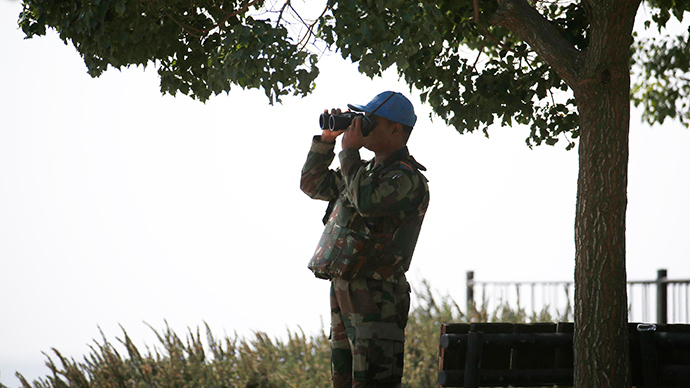‘China to take a very strong stand on US surveillance over Hainan Island’

Both China and US know that surveillance is a part of their relationship, however Hainan Island is an extremely important asset to China since its nuclear armed submarines are located there, and international specialist on China Andrew Leung told RT.
The US-China relations have been shaded by a recent encounter when a Chinese fighter jet intercepted a US Navy anti-submarine reconnaissance plane. The incident took place not far from China's southern Hainan Island where several Chinese military bases are located.
RT:So the Pentagon carries out frequent surveillance missions over the South China Sea. This time a US plane was spotted near Hainan Island, where a Chinese military base is located. What is the goal of these missions?
Andrew Leung: I think that this part of the power rivalry between America and China, especially over the South China Sea, which to China of course is an essential and critical channel for the supply of energy as well as trade, but also as a conduit for China’s naval forces into the Pacific. Particularly, a lot of China’s top-class nuclear armed submarines are based in Hainan Island which is China's gateway to the Pacific because the water in the South China Sea is relatively shallow, but at Hainan island, because of its configuration is an ideal place for China’s strategic submarines. Nuclear arms submarines are a part of this asymmetric warfare because China is no match with America as far as aircraft carriers are concerned, and indeed a lot of the top-edge military hardware. But nowadays warfare is not fought aircraft carrier to aircraft carrier or tanks to tanks, but as a kind of asymmetric deterrence, and for nuclear powers the essential thing is equitable survival, a survivable deterrence.
RT:China condemned the move but did not retaliate. Could Beijing take tougher action in future if such incidents are repeated?
AL: Of course if China’s airspace or China’s military assets are directly threatened, then of course China would take a much stronger response. But flying very very close to a potentially hostile aircraft is a very dangerous affair, and of course one can recall that a number of years ago there was a crash between a Chinese military plane and an American warplane leading to unnecessary tension between the two countries. So I think that now China is on the one hand trying to develop “a code of conduct” through military exchanges, hot lines, etc. to avoid unintended consequences. Let’s not forget that if there is a direct crash and open fire happens, then it will be very dangerous affair because the whole thing could escalate and there is no stopping it.
RT:Could the recent surveillance disputes have a negative impact on US-China relations, specifically their economic ties?
AL: This is part of the relationship. I think China knows it, America knows it, and China knows that this is a very powerful leverage but on the other hand, China is trapped in these US Treasuries investments before China’s economy and financial system is fully liberalized. So the two sides, on the one hand, are dependent on one another, on the other hand, are rivals. So I think both sides have got to manage their relationship very carefully, and both sides are doing it. Unfortunately, in terms of Hainan Island which is a very sensitive asset to China, so China has got to take a very tough stand on this.
The statements, views and opinions expressed in this column are solely those of the author and do not necessarily represent those of RT.
The statements, views and opinions expressed in this column are solely those of the author and do not necessarily represent those of RT.












